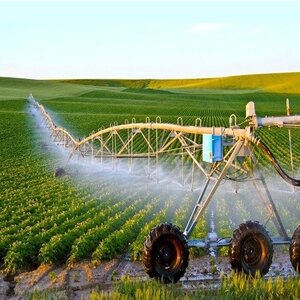Agricultural Education Becoming Outcome-based
 Indian Council of Agricultural Research (ICAR) conducted one session last month to include agriculture as part of the school curriculum. ICAR director general Trilocan Mohapatra, ICAR deputy director general (Education) R C Agrawal and Association of India Universities general secretary Pankaj Mittal were present in the session.
Indian Council of Agricultural Research (ICAR) conducted one session last month to include agriculture as part of the school curriculum. ICAR director general Trilocan Mohapatra, ICAR deputy director general (Education) R C Agrawal and Association of India Universities general secretary Pankaj Mittal were present in the session.
Amidst the ongoing innovations that have been happening across the agricultural sector, there has been a visible upsurge in admissions across various agricultural courses. The study of agriculture has emerged as one of the most sought-after specializations of B.Sc. in India and as per the ICAR, currently, there are 64 State Agricultural Universities, 3 Central Agricultural Universities, and 4 deemed universities in India to offer B.Sc. Agriculture admission in India. Some of the most sought-after courses across the agricultural sector are Agronomy, Agricultural Biotechnology, Agricultural Microbiology, Horticulture, Plant Pathology, Entomology, Agricultural Economics, Extension education, Genetics, and Plant Breeding, Soil Science, Food technology, Soil Microbiology, and so on.
This article focuses on the Current innovations happening in the agricultural education field to address the rising demand of tech-enabled agricultural practices happening across India as well as the globe.
Ongoing Agricultural Research
A lot of research and studies are currently being done across the areas related to organic agriculture, vertical farming, and intensive agriculture. The aim is to cater to the needs of the increasing world population and address the mounting concern for environmental issues. Similarly, areas pertaining to animal immunization, embryo transfer, genetic engineering, artificial insemination, biological control of pests, hydroponics, and tissue culture are also arresting the attention of scientists and researchers lately. In agriculture, the main motive of the scientists is to seek and discover innovative procedures that will not only enhance livestock and crop yields but will also accelerate farmland productivity and minimize crop loss due to disease and insects. These days, more emphasis is given to the development of efficient agricultural equipment and the implementation of advantageous agricultural practices that ultimately lead to the enhancement of overall food quality. Students and researchers are exploring novel ways to increase farmers’ profits, while simultaneously protecting the environment as well.
Hands-on Learning in Agriculture
Despite the high volumes of theoretical knowledge one acquires, students in the agricultural sector need hands-on knowledge to succeed in the agricultural arena. Since the agriculture domain needs the pragmatic involvement of the farmers; many higher educational institutions in this segment are adopting hands-on learning across their curriculum to enable the students to emerge as prolific stalwarts of this sector. In India, many universities have introduced internships for BSc (Agri) final year students. As per one recent report in the Times of India, Ernakulam district panchayat of Kochi, Kerala, has launched an educational tourism project at the state seed production center at Okkal. According to the TOI report, this is aimed at introducing agriculture and the various aspects of nature conservation to students as an enjoyable learning experience. Last year, another report came up in The Hindu, where it was mentioned that – “A month-long training program for a group of agriculture students from Tamil Nadu Agricultural University (TNAU), Coimbatore, has helped them gain hands-on-experience in crop cultivation, farm technologies and also marketing of agricultural products.”
Career Opportunities to Explore
Agricultural education doesn’t confine its students to traditional farming, but recently, many new roles have come up for students who are excelling in this domain. Apart from traditional farming, students having an agricultural degree can work in Government Research Institutes, State Agricultural Universities (SAUs), Seed Manufacturing Companies, Food Technology Companies, Banks, Agriculture Fields, MNCs, Fertilizer Manufacturing Firms, and so on. There is abundant availability of jobs for graduates and postgraduates in Agriculture across both private and public sectors. Some of the popular agriculture job profiles in India include Agricultural scientist, Production Manager, Food Microbiologist, Crop Specialist, Plant Geneticist, Agricultural Engineer, Agricultural Inspector, Agronomist, Water Conservationist, Soil Engineer, Agriculture Officer, Food Researcher, Soil Surveyor, Agricultural Food Scientist, Agricultural Manager, Aquatic Ecologist, Soil And Plant Scientist, Horticulturalist, and so on.
India’s Journey Towards Renovating the Agricultural Education Ecosystem
Parents and students often end up associating agriculture with rural landscapes and struggling farmers, however, the segment is currently being led by prolific scientists and researchers to produce the best crops. India has always been the land of farming and agriculture, and therefore, the Indian govt. is not shying away from recognizing the fact that the study of agriculture has indeed become diverse and challenging. Encouraging the universities to upgrade their curriculum and teaching methodologies, India is shaping its students to resume its position as the global agricultural leader in the future as well. Addressing a brainstorming session last month, which was organized by Indian Council of Agricultural Research (ICAR), agriculture minister Narendra Singh Tomar said, “Agriculture is priority and strength of Indian economy, acts as the backbone in adverse conditions. The government is making rigorous efforts to embrace agriculture as part of the school curriculum.” Imparting graduates with strong statistical and experimental design skills to manage the science and economics of the present agriculture arena, the agricultural education segment of India has been able to make a significant mark across the global agricultural podium.

.jpg)